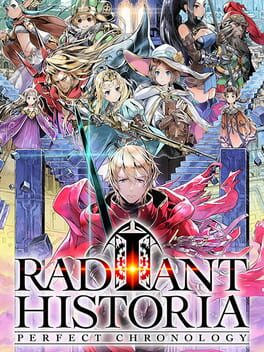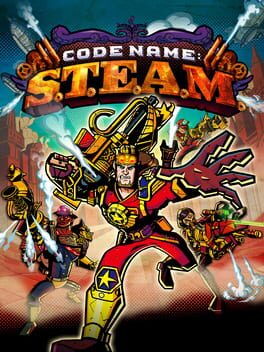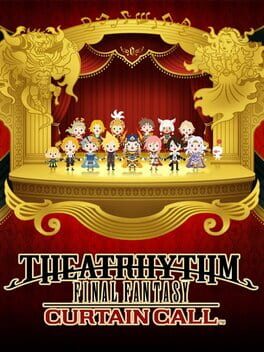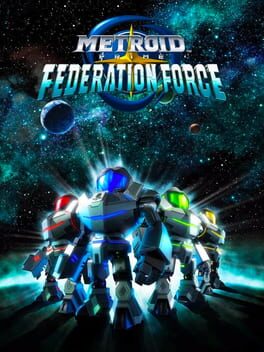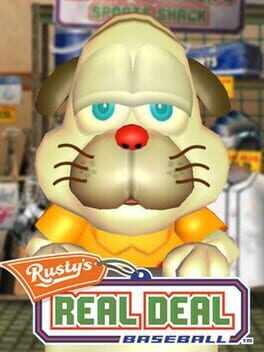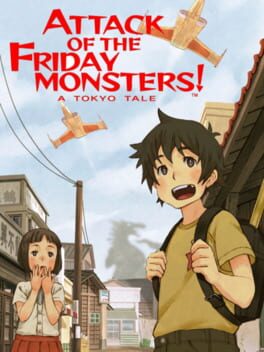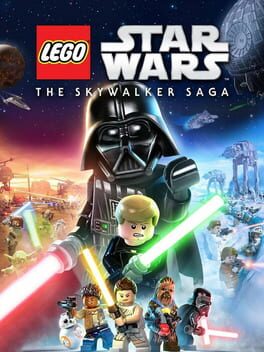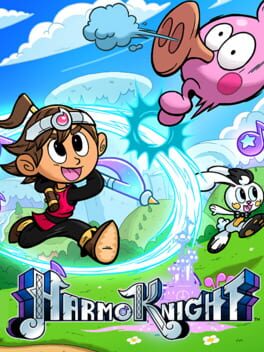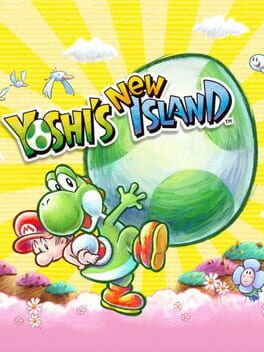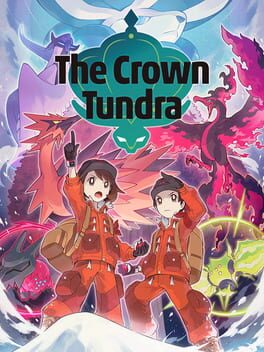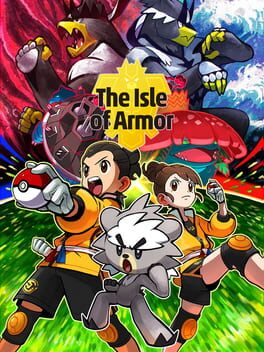ann3lid
2015
After getting through the initial stages I started to warm up to the game. The steam mechanic functioning as the joint movement and action currency is pretty clever and forces some tough decision making. The handling of the POC characters is generally pretty embarrassing. Sometimes there is a lack of information provided that can make scenarios feel frustrating. Notably, it's hard to tell if your attack is likely to hit an enemy's weak spot and there is no overhead map view.
Using the music of Final Fantasy already gives this rhythym game a leg up; Nobuo Uematsu is a great composer even when disregarding the medium of video games. Full of nods to the series and packed with gameplay tweaks to the normal rhythym formula that instill it with a real Final Fantasy feeling. Unique backgrounds for particular songs and some stellar DLC tracks make this a standout and a clear upgrade from the first game.
This game is actually much better than I expected it to be, but the heavy focus on multiplayer, time of release, and the awkward control schemes were really a perfect storm for this game to be abandoned on release. I could see a follow-up to this doing much better on switch, but unfortunately I don't think we'll see one.
2015
The scope of this game is pretty unreal, but a lot of it feels like trendy game design concepts were thrown into a blender regardless of if they fit or not. This game is the most fun when you're exploring the galaxy hunting down the many collectables and listening to a podcast/watching TV in the background.
2012
Rhythym game meets platformer. The introduction of additional members to your party helps introduce some variety into the otherwise simple, but tight, gameplay. The use of a dynamic camera during boss fights helps lend the levels some real spectacle. Unfortunately the music itself is probably the weakest part of the game. I found myself having more fun during the bonus levels which use songs from the Pokemon series.
2012
2014
It's a Yoshi game so you're getting a baseline of quality in the experience. However, the soundtrack really is as bad as everyone says, there are very few innovations since the first game, and the graphics at times come off looking somewhat cheap. Playing the game mostly made me just want to play the original.
2021
Got the expansions for the base game years later to work on my living dex and had a surprisingly good time with the DLC. The secret sauce here is that the whole island is a wild area. I think this represents an important step for the franchise that wasn't talked about at the time because in the end I also agree that this should have been in the base game. As we can also see from Scarlet/Violet, the concept of gaining a legendary at the beginning and growing alongside it is a formula that makes you feel much more attached to the mon in the end and IMO makes for a better overall experience. It was just a bit too short in the end.
Ambitious sci-fi storytelling meets the best implementation of the active time battle system to date. If you are at all interested in this game, try to go in knowing as little as possible.
This game is essentially one part visual novel and one part real(ish) time strategy smashed together. The gameplay hook of having 13 characters really works since each story has a different focus. Some are more personal whereas others play directly into the central plot from go, allowing you to jump around as you see fit. The story hits on just about every sci-fi trope, but in a very self-referential way that is equal parts hilarious and compelling. Because of the amount of twists and the ways in which you can dictate which parts of the story you experience, you will eventually look like the Charlie conspiracy wall meme.
The second part of this game plays out as an RTS/tower defense battle. I mention above that its more of a "real(ish) time strategy" game because the battles pause when actions are being chosen, allowing you to strategize around the current situation. Although the rather abstract visuals are a little disappointing at first (compared to the beautiful visuals of the other half of the game) they really capture the sense of spectacle of a battle between giant opposing forces. This is especially the case later in the game when the enemy forces grow in size and sheer number. Aside from the primal exciment you get from blowing up kaiju, I was really impressed by the ways in which the battles play into the story, both through dialogue before and after fights and even in the mechanics of the battling itself. Since the visual novel half rewards you with this game's version of EXP, there is a really nice synergy between these two game modes that keeps you bouncing back and forth.
My only major gripe with this game is the way in which many of the women and LGBT characters were handled. I understand that this game is toned down compared to their last, but some of the depictions of women in this game (notably, Ms. Morimura) are extremely male gazey and the way that most of the men in the game talk to them is, at times, just gross. Couple this with the fact that most of the major characters are high schoolers (a fact which I try to just block out of my mind) and it feels even more inexcusable. Tsukasa Okina is a character I have a lot of thoughts about, but this review is already too long as it is. All I'll say is that it's ... almost ... good queer representation, which is a step in the right direction for Atlus, but they're still not quite there.
Overall, this game is a triumph for the visual novel genre and, as I mentioned in the opening, potentially the best implementation of the ATB system. If it weren't for some poor representation this would be a near perfect experience from start to finish.
This game is essentially one part visual novel and one part real(ish) time strategy smashed together. The gameplay hook of having 13 characters really works since each story has a different focus. Some are more personal whereas others play directly into the central plot from go, allowing you to jump around as you see fit. The story hits on just about every sci-fi trope, but in a very self-referential way that is equal parts hilarious and compelling. Because of the amount of twists and the ways in which you can dictate which parts of the story you experience, you will eventually look like the Charlie conspiracy wall meme.
The second part of this game plays out as an RTS/tower defense battle. I mention above that its more of a "real(ish) time strategy" game because the battles pause when actions are being chosen, allowing you to strategize around the current situation. Although the rather abstract visuals are a little disappointing at first (compared to the beautiful visuals of the other half of the game) they really capture the sense of spectacle of a battle between giant opposing forces. This is especially the case later in the game when the enemy forces grow in size and sheer number. Aside from the primal exciment you get from blowing up kaiju, I was really impressed by the ways in which the battles play into the story, both through dialogue before and after fights and even in the mechanics of the battling itself. Since the visual novel half rewards you with this game's version of EXP, there is a really nice synergy between these two game modes that keeps you bouncing back and forth.
My only major gripe with this game is the way in which many of the women and LGBT characters were handled. I understand that this game is toned down compared to their last, but some of the depictions of women in this game (notably, Ms. Morimura) are extremely male gazey and the way that most of the men in the game talk to them is, at times, just gross. Couple this with the fact that most of the major characters are high schoolers (a fact which I try to just block out of my mind) and it feels even more inexcusable. Tsukasa Okina is a character I have a lot of thoughts about, but this review is already too long as it is. All I'll say is that it's ... almost ... good queer representation, which is a step in the right direction for Atlus, but they're still not quite there.
Overall, this game is a triumph for the visual novel genre and, as I mentioned in the opening, potentially the best implementation of the ATB system. If it weren't for some poor representation this would be a near perfect experience from start to finish.
